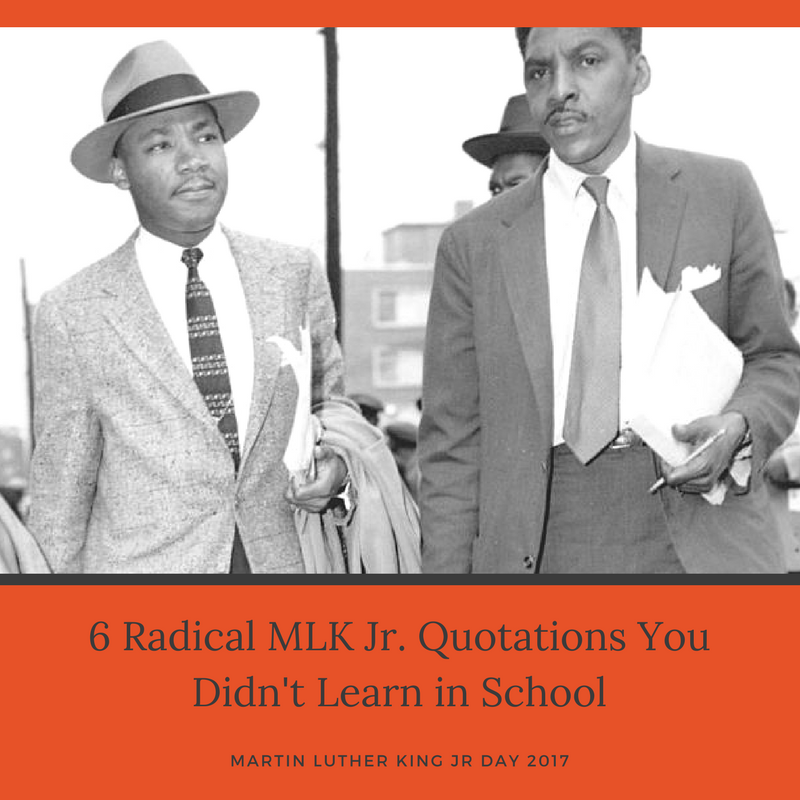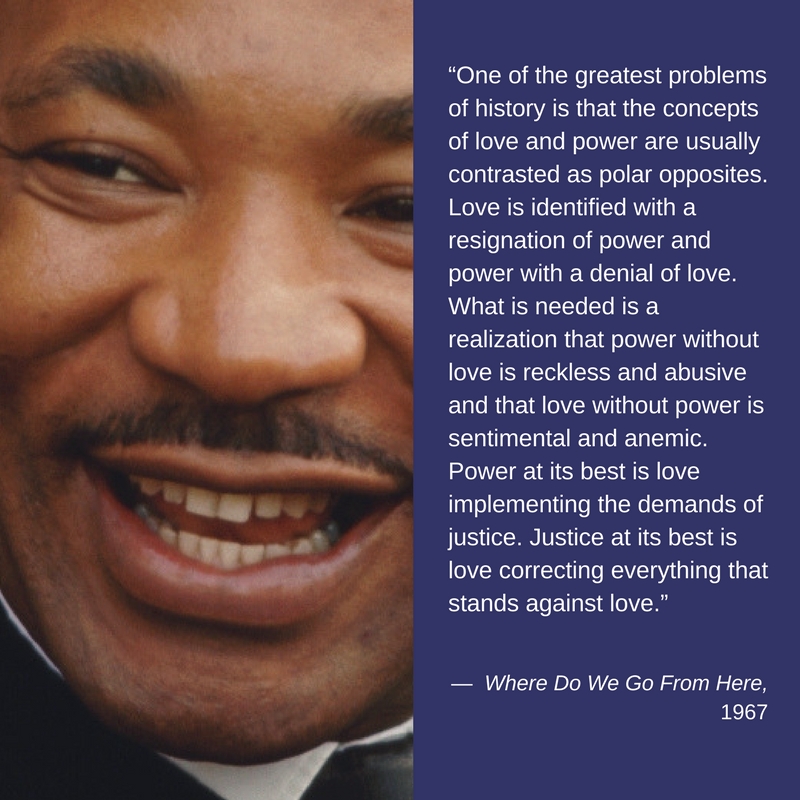
On this Martin Luther King Jr. day, we celebrate the legacy of the iconic civil rights leader with some of our favorite quotations from his work. They ring true now in our divided, unequal country as they did the first time he spoke them. While many of us were taught a narrative of the 1960s civil rights movement as a finite, completed project that completely solved racial inequality, these words remind us how the fight for justice is ongoing and crucial.

“Why is equality so assiduously avoided? Why does white America delude itself, and how does it rationalize the evil it retains?
The majority of white Americans consider themselves sincerely committed to justice for the Negro. They believe that American society is essentially hospitable to fair play and to steady growth toward a middle-class Utopia embodying racial harmony. But unfortunately this is a fantasy of self-deception and comfortable vanity.”
— Where Do We Go From Here, 1967
“But it is not enough for me to stand before you tonight and condemn riots. It would be morally irresponsible for me to do that without, at the same time, condemning the contingent, intolerable conditions that exist in our society. These conditions are the things that cause individuals to feel that they have no other alternative than to engage in violent rebellions to get attention. And I must say tonight that a riot is the language of the unheard. And what is it America has failed to hear?…It has failed to hear that the promises of freedom and justice have not been met. And it has failed to hear that large segments of white society are more concerned about tranquility and the status quo than about justice and humanity.”
— “The Other America,” 1968
“A nation that continues year after year to spend more money on military defense than on programs of social uplift is approaching spiritual death.”
—“Beyond Vietnam,” 1967
“The evils of capitalism are as real as the evils of militarism and evils of racism.”
— Speech to SCLC Board, 1967
“I have almost reached the regrettable conclusion that the Negro’s great stumbling block in the stride toward freedom is not the White Citizens Councillor or the Ku Klux Klanner but the white moderate who is more devoted to order than to justice; who prefers a negative peace which is the absence of tension to a positive peace which is the presence of justice; who constantly says, “I agree with you in the goal you seek, but I can’t agree with your methods of direct action”; who paternalistically feels that he can set the timetable for another man’s freedom; who lives by the myth of time; and who constantly advises the Negro to wait until a “more convenient season.” Shallow understanding from people of goodwill is more frustrating than absolute misunderstanding from people of ill will. Lukewarm acceptance is much more bewildering than outright rejection.”
— Letter From Birmingham Jail, 1963

